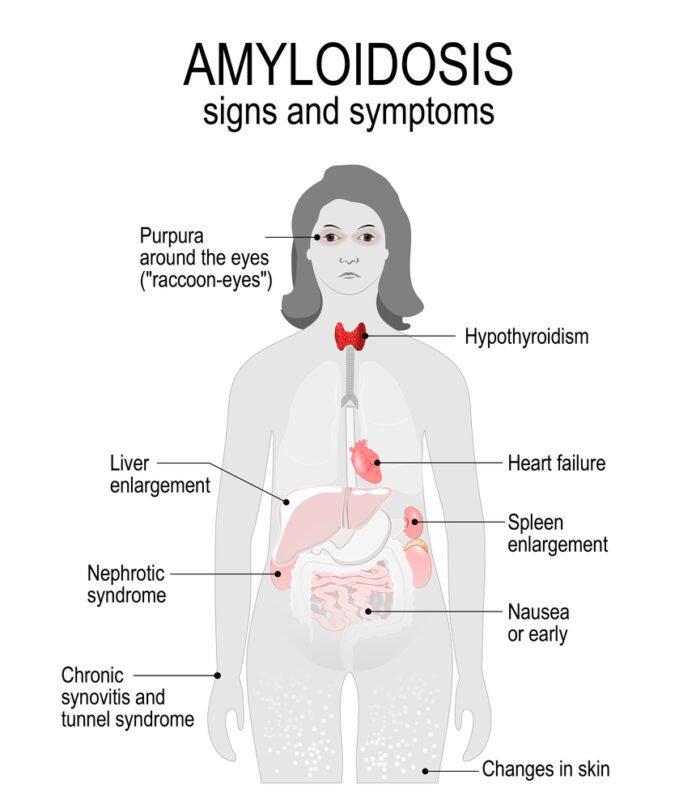Overview Of Primary Amyloidosis
Primary Amyloidosis is a rare disorder in which abnormal proteins build up in tissues and organs. Clumps of the abnormal proteins are called amyloid deposits.
Commonly Associated With
Amyloidosis – primary; Immunoglobulin light chain amyloidosis; Primary systemic amyloidosis
Causes Of Primary Amyloidosis
The cause of primary amyloidosis is not well understood. Genes may play a role.
The condition is related to abnormal and excess production of proteins. Clumps of abnormal proteins build up in certain organs. This makes it harder for the organs to work correctly.
Primary amyloidosis can lead to conditions that include:
- Carpal tunnel syndrome
- Heart muscle damage (cardiomyopathy) leading to congestive heart failure
- Intestinal malabsorption
- Liver swelling and malfunction
- Kidney failure
- Nephrotic syndrome (group of symptoms that includes protein in the urine, low blood protein levels in the blood, high cholesterol levels, high triglyceride levels, and swelling throughout the body)
- Nerve problems (neuropathy)
- Orthostatic hypotension (drop in blood pressure when you stand up)
Symptoms Of Primary Amyloidosis
Symptoms depend on the organs affected. This disease can affect many organs and tissues, including the tongue, intestines, skeletal and smooth muscles, nerves, skin, ligaments, heart, liver, spleen, and kidneys.
Symptoms may include any of the following:
- Abnormal heart rhythm
- Fatigue
- Numbness of hands or feet
- Shortness of breath
- Skin changes
- Swallowing problems
- Swelling in the arms and legs
- Swollen tongue
- Weak hand grip
- Weight loss or weight gain
Other symptoms that may occur withprimary amyloidosis:
- Decreased urine output
- Diarrhea
- Hoarseness or changing voice
- Joint pain
- Weakness
Exams & Tests
The health care provider will examine you. You will be asked about your medical history and symptoms. A physical exam may show that you have a swollen liver or spleen, or signs of nerve damage.
The first step in diagnosing amyloidosis should be blood and urine tests to look for abnormal proteins.
Other tests depend on your symptoms and the organ that may be affected. Some tests include:
- Abdominal ultrasound to check the liver and spleen
- Heart tests, such as an ECG, or echocardiogram, or MRI
- Kidney function tests to check for signs of kidney failure (nephrotic syndrome)
Tests that can help confirm the diagnosis include:
- Abdominal fat pad aspiration
- Bone marrow biopsy
- Heart muscle biopsy
- Rectal mucosa biopsy
Treatment Of Primary Amyloidosis
Treatment may include:
- Chemotherapy
- Stem cell transplant
- Organ transplant
If the condition is caused by another disease, that disease should be aggressively treated. This may improve symptoms or slow the disease from getting worse. Complications such as heart failure, kidney failure, and other problems can sometimes be treated when needed.



